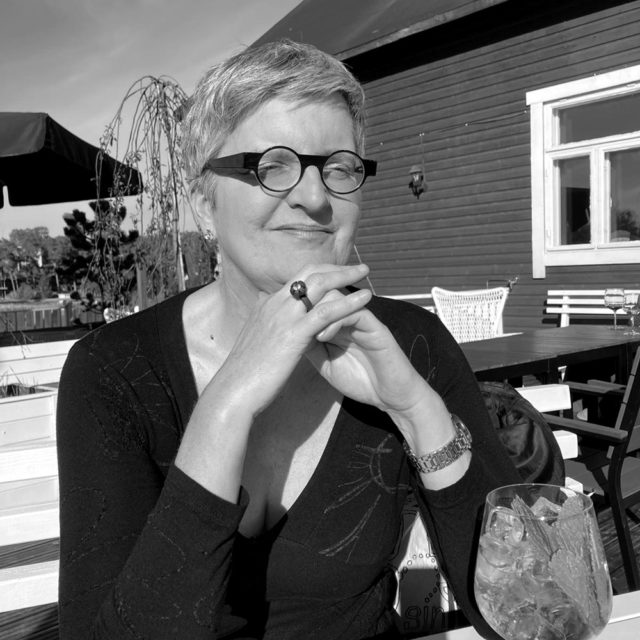Friederike Lüpke
The Language(s) of Multilingualism: Atlantic Perspectives on Conceptualising Small-Scale Multilingualisms
Conferencista
-
Friederike Lüpke

Friederike Lüpke
I am Professor of African Studies in the Department of Languages at the University of Helsinki (Finland) and Professorial Research Associate at the School of Oriental and African Studies London (UK). Trained as a descriptive linguist at the University of Cologne (Germany), the Institut National des Langues et Civilisations Orientales Paris (France) and the Max Planck Institute for Psycholinguistics Nijmegen (The Netherlands), my research combines descriptive and documentary linguistics with sociolinguistic and anthropological perspectives on language and language use. Geographically, my research focuses on the Mande and Atlantic spaces of West Africa. For the past decade, I have conducted extensive research on rural multilingualism in Senegal and on multimodality in multilingualism. From 2014 to 2018 I led the project Leverhulme Research Leadership Award Project “At the Crossroads – Investigating the unexplored side of multilingualism”, in which an interdisciplinary team developed a holistic multidisciplinary approach to the study of multilingualism. I have published widely in leading journals, including Language, Cognitive Semantics, The International Journal of Multilingualism, the Journal of Language Contact and the International Journal of Bilingualism. My 2013 monograph Repertoires and choices in African languages (co-written with Anne Storch) examines the colonial history of African linguistics and develops an innovative research agenda for this field, emphasising the importance of language as social practice.
Resumo →
Friederike Lüpke
The Language(s) of Multilingualism: Atlantic Perspectives on Conceptualising Small-Scale Multilingualisms
That multilingualism prevails on the African continent is a common trope. However, as widely criticised by a growing number of linguists, how multilingualism is imagined and described testifies of the weight of a particular perspective on language that takes monolingualism as the vantage point from which communicative practice is explored. Such a lens often pre-empts an appreciation of the social practices that shape language use and language ideas in settings not conforming to ethnolinguistic nation states. The reach of this perspective originating in the global North, and of research on Northern settings in determining epistemologies, methodologies and ontologies of multilingualism research remains huge.
In this talk, I move beyond a critique of such a perspective globally. Instead, I reflect on the multiple and changeable ways of conceptualising language ideas and language use in contexts that have been shaped by the interaction of heteroglossic local practice and violent globalisation processes in the Atlantic space from the 15th century onwards. I explore briefly how these settings challenge current concepts but focus on alternative ontologies emerging from recent research. I illustrate my epistemological points with data from small-scale multilingual societies of West Africa, also pointing to similarities with Amazonian multilingual settings of Brazil. These language ecologies are characterised by adaptive multilingual practice in which social difference and multiple social connections are indexed through language as one of many semiotic means at the individual and societal level, at different scales and in different linguistic spaces. I present a research programme that places social semiotics and interactive indexical language use centre stage by paying close attention to spatial patterns and language regimes that individuals experience, which inform their perspectival options and have an impact on their language use and language categorisation. This agenda is inspired by Achille Mbembe’s call for a new pluriversity to break up and relativise hegemonic perspectives and bring relationality and positionality to the fore of social science research.
